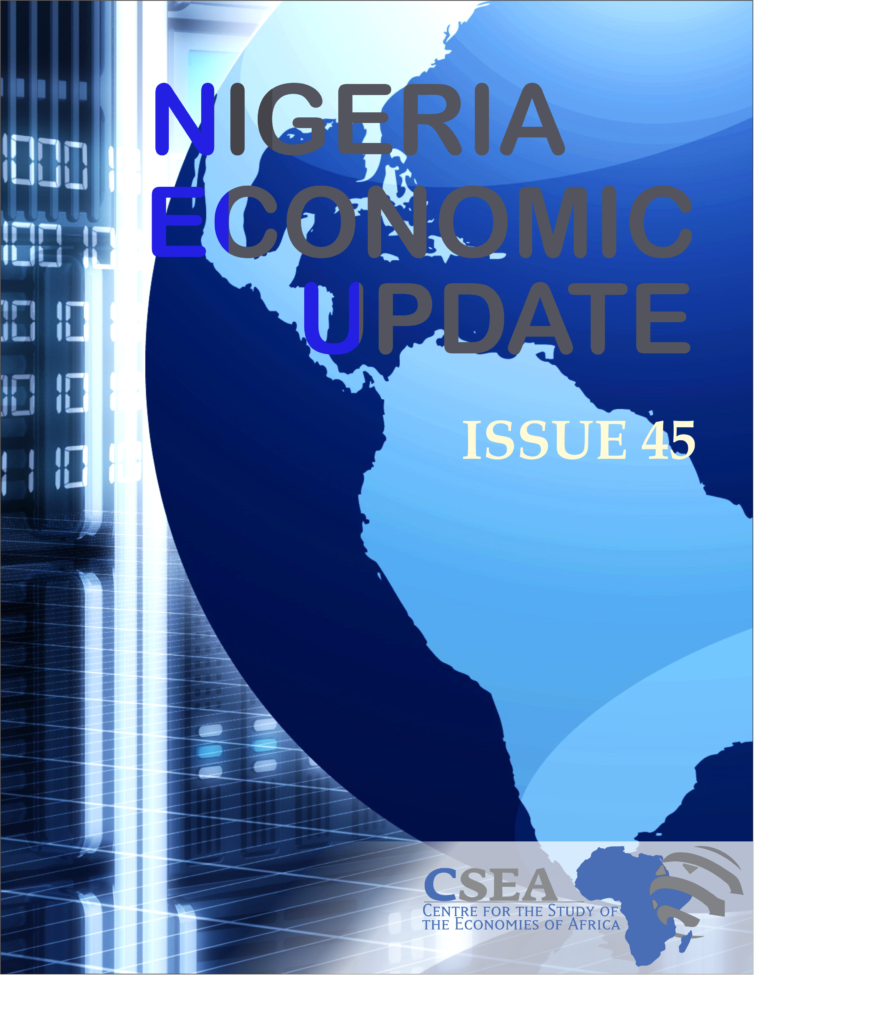According to the latest CBN financial inclusion report, overall progress towards achieving the Nigeria Financial Inclusion Strategy (NFIS) fell short of the annualized target in 2017. The World Bank’s Findex database also shows that ownership of an account with a financial institution or a mobile money provider dropped by 4 percentage points from 44% in 2016 to 40% in 20171. The gender disparity in account ownership is greatly manifested, with 51% men owning an account compared to 27% women. Although critical themes were outlined to scale up financial inclusion targets in 2017, factors such as religious and cultural bias to the uptake of financial products, worsening levels of unemployment, and high levels of informality in the economy remained setbacks toward achieving higher rates of financial inclusion in Nigeria.
Macroeconomic Report & Economic Updates

November 21, 2018
Nigeria Economic Update (Issue 45)
According to the latest CBN financial inclusion report, overall progress towards achieving the Nigeria Financial Inclusion Strategy (NFIS) fell short of the annualized target in 2017. The World Bank’s Findex database also shows that ownership of an account with a financial institution or a mobile money provider dropped by 4 percentage points from 44% in […]
Read →
Related
Understanding The Ongoing Recession In Nigeria:A Synthesis Of The Events And Policy Options
In
the second quarter of 2016, the Nigerian economy witnessed its first recession
in twenty years due to the interplay of several external and internal factors.
The recession has continued until date and has given rise to relentless
unemployment rate and job losses, double digit and soaring inflation, currency
depreciation and widening gap between parallel market and official exchange
rates, amongst other adverse effect on individuals and firms in the country.
Thus, there is a need to take a deeper look into the nature of the present
recession as well as the impact of monetary and fiscal policy responses thus
far, in order to shed light on the way forward towards tackling the recession
and ensuring sustainable economic growth. This paper analyses the ongoing
recession in the Nigerian economy to provide insights into the interplay of
events and recommendations for policy.
